For many businesses and professionals in Singapore, unpaid invoices can create more than just financial strain; they can disrupt cash flow, damage client relationships, and stall growth. Whether you run a Small or Medium Enterprise (SME), manage property rentals, operate a medical clinic, or handle finance for a large corporation, ensuring timely payments is essential.
When overdue accounts become too challenging to manage in-house, partnering with a licensed debt collector in Singapore can be the most efficient and legal route to recovery. But with so many agencies available, how do you identify the best one for your needs? This guide will walk you through the critical steps in choosing the right partner for effective, professional, and lawful debt recovery in Singapore.
Why Choose a Licensed Debt Collector?
In Singapore, debt collection is regulated to protect both creditors and debtors. Licensed agencies comply with local laws, industry guidelines, and ethical practices, ensuring that recovery efforts are legal, respectful, and efficient. Businesses often partner with licensed debt collection agencies like Info Capital to secure legal compliance and speed up debt recovery.
Read more about: Why Hiring a Professional Debt Collection Agency Saves You Money
Benefits of Hiring a Licensed Agency
- Legal compliance with Singapore’s regulatory framework
- A professional approach that maintains your business reputation
- Higher recovery rates due to proven strategies and negotiation skills
- Specialized industry knowledge, e.g., for medical, property, or corporate debt
- Reduced workload for your internal finance or admin teams
Step 1: Check Licensing and Accreditation
The first and most important step is to confirm that the agency is licensed by the relevant authorities in Singapore. Look for:
- Valid business registration with the Accounting and Corporate Regulatory Authority (ACRA)
- Industry affiliations or memberships in professional bodies
- Compliance with Personal Data Protection Act (PDPA) guidelines
Step 2: Assess Industry Experience
Different industries have unique debt recovery challenges. For example:
- Law Firms may need discreet handling of sensitive cases
- Property Managers often face rental arrears or lease breaches.
- Telcos & Utilities deal with high-volume, low-value accounts.
- Medical Clinics require tactful approaches to maintain patient relationships.
Choose an agency with proven experience in your sector; they’ll understand the common obstacles and know how to overcome them efficiently.
Step 3: Understand Their Recovery Process
A reputable legal bad debt collection agency will be transparent about its methods. Ask about:
- Initial debtor contact procedures
- Use of written notices, phone calls, and face-to-face visits
- Timeframes for expected recovery
- Escalation processes, including legal action if necessary
The goal is to ensure their approach aligns with Singapore’s laws and your own company’s values.
Step 4: Review Success Rates and Case Studies
Ask for statistics or case studies that demonstrate recovery success. For example:
“Our agency recovered 85% of outstanding payments for a mid-sized logistics company within 60 days.”
Look for evidence of consistent performance, especially in cases similar to yours.
Step 5: Evaluate Communication and Reporting
Debt recovery is not a “set and forget” service. You should expect:
- Regular updates on case progress
- Clear reporting formats
- Accessible points of contact for urgent queries
Step 6: Compare Fees and Service Packages
Debt collection fees can vary; some agencies charge a percentage of recovered funds, while others work on a flat-rate basis. Ensure you understand:
- How fees are calculated
- Whether additional legal costs are included or separate
- Payment timelines once funds are recovered
Step 7: Check Client Reviews and References
Online reviews, industry recommendations, and direct client references can reveal a lot about an agency’s reliability and professionalism. Search for feedback on:
- Recovery success rates
- Ethical practices
- Customer service quality
Step 8: Ensure Compliance with PDPA and Ethical Standards
Given the sensitivity of debtor information, strict compliance with Singapore’s Personal Data Protection Act (PDPA) is essential. Ask about their data handling protocols and how they maintain confidentiality throughout the recovery process.
Conclusion
Choosing the Best Debt Collector Singapore isn’t just about finding someone to chase overdue payments; it’s about selecting a professional partner who will safeguard your reputation, recover funds efficiently, and operate within the law.
By checking licensing credentials, assessing industry experience, reviewing recovery processes, and comparing service quality, you can confidently choose an agency that meets your needs.
If you’re ready to recover your outstanding debts without compromising professionalism or compliance, Info Capital is here to help. Our licensed team has years of experience assisting SMEs, law firms, property managers, and corporate finance teams across Singapore.
FAQs
1: Why should I hire a licensed debt collector in Singapore instead of handling debts myself?
Hiring a licensed debt collector ensures compliance with Singapore’s legal and regulatory framework. Licensed agencies are trained to recover debts professionally, avoid harassment practices, and protect your business reputation. Attempting to collect debts on your own may strain client relationships or even expose you to legal risks.
2: How do I verify if a debt collection agency in Singapore is licensed?
You can verify an agency’s license by checking the Ministry of Law’s official list of licensed debt collectors in Singapore. This ensures you are engaging a legally compliant agency that adheres to government regulations.
3: What qualities should I look for in the best debt collection agency?
Look for qualities such as industry experience, a strong track record of successful collections, transparent fees, professionalism, and ethical recovery practices. It is also important to check client reviews and their dispute resolution processes.
4: How much do licensed debt collectors in Singapore usually charge?
Licensed debt collection agencies generally charge either a commission-based fee (a percentage of the recovered debt) or a flat rate, depending on the complexity of the case. Costs vary, so always request a clear breakdown of fees before engaging their services.
5: Can a licensed debt collector take legal action against debtors?
Licensed debt collectors themselves cannot initiate legal proceedings, but they can work with lawyers on your behalf. Their role is primarily to negotiate and recover debts through professional collection methods. If legal escalation is required, they will advise you on the next steps and connect you with legal experts.


